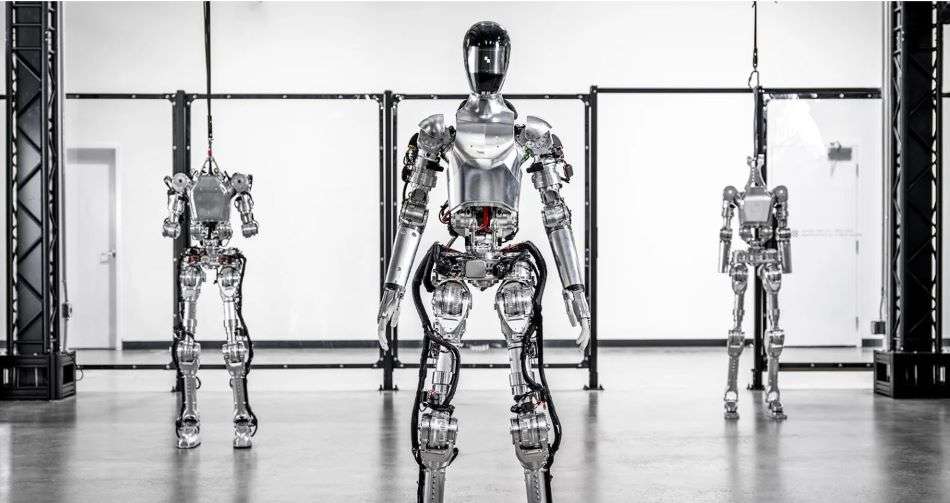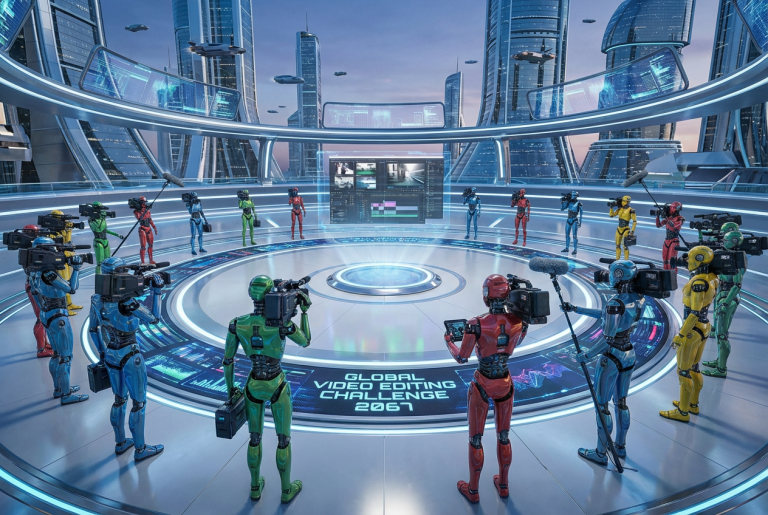AI in March 2024: Security Breaches, Ethical Shifts, and Robots on the Rise

AI in March 2024: Security Breaches, Ethical Shifts, and Robots on the Rise
March 2024 proved a watershed moment for the artificial intelligence industry. From a high-profile indictment highlighting the dangers of intellectual property theft to the surprising open-source release of a powerful language model (guess who), the month saw a whirlwind of events showcasing both the immense potential and the growing risks associated with AI technology. Here, we unpack these developments and their far-reaching implications.
Security Spotlight: Trade Secrets and International Espionage

The indictment of a former Google software engineer accused of stealing AI trade secrets bound for China set off alarm bells throughout the tech world. This case, a stark example of the growing threat of AI-related intellectual property theft, made it clear that AI advancements come with a steep price – the vulnerability of these highly valuable algorithms to espionage and unauthorized exploitation.
The incident highlights the urgent need for companies to strike a delicate balance. Collaboration is essential to driving innovation in the AI field, but this must be carefully weighed against the imperative of protecting cutting-edge research and development investments.
Failure to do so carries serious consequences: slowed innovation due to excessive security measures, or more dangerously, the erosion of trust and reluctance to invest in AI altogether. The implications of this case are expected to reverberate for years to come, shaping legal battles and influencing corporate strategies on AI security.
NVIDIA Nurses: AI Enters the Hospital Ward

NVIDIA’s AI Nurses made a major splash in March 2024, signaling a potential turning point in healthcare. These virtual nurses, leveraging NVIDIA’s advanced AI capabilities, are designed for patient interaction via video calls, offering medical advice and continuous monitoring. Their headline-grabbing feature? A $9 per hour operating cost – a mere fraction of what a human nurse would cost.
The global nursing shortage is putting immense pressure on healthcare systems worldwide. AI-powered solutions like NVIDIA Nurses offer a potential solution: tireless virtual caregivers monitoring patients, taking medical histories, and providing support in overwhelmed clinics and hospitals.
Naturally, this raises some complex questions. Can AI nurses truly replicate the nuanced empathy and understanding offered by human care? This is a deep concern, and one that touches upon the very core of the patient-caregiver relationship.
XAI’s Surprising Shift: Transparency Through Open-Source
In a move that took many by surprise, XAI, the company founded by Elon Musk, embraced openness in a major way. Grok 1.5, its large language model (LLM), was released as open-source software. Traditionally operating with a closed-source platform, XAI’s decision marks a significant shift and injects a new level of transparency into the LLM landscape which is often shrouded in a certain level of secrecy.
Years after Elon Musk’s departure, OpenAI faces a lawsuit questioning its adherence to its original mission. Initially founded as a non-profit focused on open AI development for the benefit of society, Musk argue the company has shifted towards a more closed, for-profit model under Sam Altman’s leadership. Perhaps, XAI change of approach could be the result of this friction.
Moreover, the question lingers: who will take charge of Grok 1.5’s ongoing development and maintenance in an open-source environment? XAI’s bold move demonstrates a commitment to collaboration, but only time will tell whether it pays off in the long run, or whether unforeseen challenges will arise.
NVIDIA emphasizes a collaborative model where AI nurses assist, not replace human caregivers. Yet, for hospitals facing budget pressures, the economic incentives are undeniable.
OpenAI’s Figure 01: From Software to the Physical World

OpenAI’s partnership with Figure robotics takes humanoid robots to the next level. Figure 1, unlike Tesla’s Optimus which focuses on physical tasks, can now hold full conversations while completing complex chores.
In a recent demo, Figure 1 identified objects on a table, picked out the edible one when asked for food, and even explained its decision while carrying out another task.
This collaboration signals a potential breakthrough: robots that understand, reason, converse, and act independently could soon become a reality.
Apple’s Potential Pivot: AI-Powered Household Robots?
Rumors swirled that Apple might be shifting its focus away from electric vehicles and toward developing AI-powered household robots too. If true, this move would underscore AI’s ever-expanding influence, highlighting its ability to disrupt our daily lives.
The allure is clear. Imagine AI-driven robots taking on household chores, offering companionship, or providing practical assistance. However, this concept also raises a host of questions and concerns. How will we interact with our robot companions on a daily basis? Will they remain specialized tools, or evolve into something approaching artificial sentience?
This potential shift, along with OpenAI’s Figure 01 robot, hints at a future where AI assistants aren’t confined to our smartphones but actively inhabit the world around us, influencing our lives in profound and perhaps unpredictable ways. This was considered Sci-Fi just 10 years ago – now is becoming a tangible reality!
Smartphones Get Smarter: The Apple-Google Collaboration
Reports surfaced of talks between Apple and Google to integrate Google’s powerful Gemini AI engine into iPhones, with the potential to finalize a deal by June. This shift is significant for Apple, which has previously focused on developing its in-house AI model, MM1.
Launched in late 2023, MM1 primarily enhanced on-device tasks like photo recognition and voice commands. However, whispers suggest Apple might seek to supplement MM1 with Gemini’s broader capabilities.
If the deal materializes, it could unlock advanced AI features for billions of iPhone users. Tasks like image generation or essay-writing based on simple prompts could become commonplace. This collaboration represents a substantial win for Google as well, dramatically expanding its AI reach beyond its own Pixel devices.
Stability AI’s Stalled Growth: A Financial Reckoning
Stability AI, known for its open-source approach to image generation and decentralized AI models, faced major financial obstacles during this period. The company’s massive spending on cloud-based GPU rentals, estimated at a staggering $99 million annually, came under scrutiny. Projected revenue for 2023 stood at only $11 million – a glaring discrepancy that raised serious concerns about long-term sustainability.
Reports emerged of significant unpaid bills to partners like AWS, Google Cloud, and CoreWeave, adding further strain to the situation. This lack of a sound business model, despite strong interest in Stability AI’s technology, proved to be a major impediment. Talks with high-profile clients like Canva and the Singaporean government reportedly stalled amid the financial turmoil.
In desperation, the company allegedly contemplated measures such as delaying UK tax payments and even reselling its GPU debt. The situation led to high-profile departures within the company, including Ed Newton-Rex, former head of audio model development, who expressed concerns over ethical practices. With Emad Mostaque stepping down as CEO, Stability AI was left under new leadership with interim co-CEOs.
The company’s future, now burdened with both the financial woes and pending lawsuits over copyright infringement, hangs in the balance.
EU Regulation on AI: Mandating Ethical AI

The EU solidified its position as a global leader in AI regulation with the enactment of the landmark EU AI Act. This legislation mandates AI Fairness Audits for businesses deploying high-impact AI systems, forcing them to prioritize ethical considerations. It’s a clear signal to the world that responsible AI development is non-negotiable.
Key provisions of the EU AI Act include:
- Ban on Bias: Prohibits AI systems that categorize people based on sensitive characteristics (race, religion, etc.), helping prevent discrimination and ensure AI is used fairly.
- Facial Recognition Restrictions: Bans untargeted scraping of facial images from CCTV footage, enhancing individual privacy in public spaces.
- Safeguarding Emotions: Bans the use of emotion recognition technology in workplaces and schools, protecting individual rights and well-being.
- Curbing Social Manipulation: Bans social scoring systems, limiting the potential for large-scale surveillance and manipulation.
- Accountability for AI: Bans AI designed to exploit vulnerabilities and manipulate human behavior, prioritizing user safety and free will.
This comprehensive framework is expected to reshape the global AI landscape. Businesses worldwide will be forced to adapt their development and deployment practices to comply with these regulations. While compliance may temporarily create additional processes, it underscores the importance of responsible AI development and emphasizes the necessity for regulation in fostering public trust in this rapidly evolving technology.
AI Revolution in Progress: March 2024
The AI breakthroughs of March 2024 offer a mere glimpse into a future transformed. From healthcare to household helpers, AI’s reach extends with surprising speed. These are just the headlines – imagine the innovations still unseen, quietly shaping the world around us. Stay tuned to our platform for in-depth insights and the practical knowledge you need to navigate this lighting-speed era of change!




